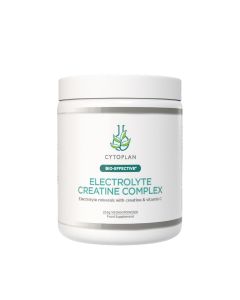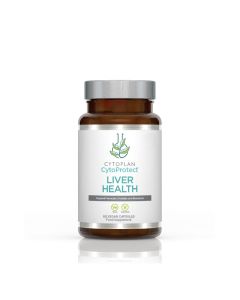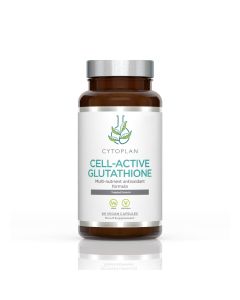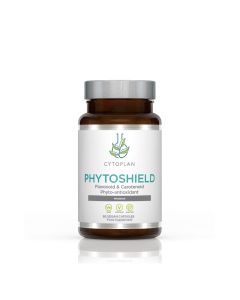How do I implement a natural detox?
Detox is a hot topic when January rolls around; the festivities of Christmas and new year are over, and you may feel like you have overindulged in the party food and drink. Instead of throwing yourself into a strict (and ultimately unsustainable) regime, have you thought about a natural detox to start the new year off right?
How can I support my detoxification pathways?
A natural detox is one that supports your body’s natural detoxification pathways, especially those that may have had to work a little harder over the Christmas period, such as the liver and digestion.
Liver
The liver has many functions including processing toxins and managing energy metabolism. Toxins go through two phases in the liver; phase 1 helps to break down harmful fat-soluble toxins and sends the raw materials to phase 2, where they will then be transformed into water-soluble waste products that can be easily excreted by the body. The great news is that a variety of vitamins, minerals, plant compounds and amino acids from protein can support both phases of detoxification.
Foods for liver health
- Cruciferous vegetables such as broccoli, cauliflower and Brussel sprouts.
- Sulphur rich foods such as onions and garlic.
- Antioxidant rich foods found in colourful fruits and vegetables.
- Protein rich foods
Alongside a nutritionally balanced diet, nutrients such as B vitamins, Vitamin C and E and minerals such as selenium and magnesium, can have a positive effect on liver function and can be found in a good quality multivitamin.
Herbs to support the liver
Herbs such as dandelion, schisandra, turmeric, milk thistle, burdock and artichoke hold antioxidant and anti-inflammatory properties and are known to be hepatoprotective.
Glutathione
Glutathione is the most abundant antioxidant in the body that can recycle other antioxidants. It is also involved in both phase 1 and phase 2 detoxification. To increase your body's natural production, include vitamin C, selenium, cruciferous and sulphur rich foods regularly. Foods highest in glutathione include asparagus, spinach and avocados. Supplementing glutathione in a liposomal form is preferred as it is able to pass through cell membranes and be used directly within the cell.[RT1]
Digestion
Often called phase 3 of detoxification, the digestive system is a vital elimination pathway for toxins and other metabolites, such as used hormones, that we don’t want to recirculate in the body. Make sure that you are eating plenty of fibre and staying well hydrated to ensure you are having a daily bowel movement to promote this detoxification pathway. A multi-strain probiotic or a supplement providing a blend of mixed prebiotic fibres can support healthy gut motility.
Urinary
Aim for 2 litres of filtered water, or herbal teas every day. Hydration is very important, especially during a detox as water helps transport waste products, removing them through sweat, urination and the breath. Caffeinated drinks such as tea, coffee and fizzy drinks can have a dehydrating effect on the body, so it’s best to keep these to a minimum.
Exercise
Exercise encourages circulation and the elimination of toxins through sweat. It is also beneficial for stress, mood and weight loss. Exercise can also stimulate glutathione production.
Sleep
Inadequate sleep can result in a build-up of toxins. Melatonin – our sleep hormone is a potent antioxidant, and a healthy sleep wake cycle is vital for detoxification. Nutrients that can help support sleep include magnesium bisglycinate and the amino acid L-Theanine.
Do's of a detox:
- Include a variety of vegetables and fruits, beans, pulses, legumes, nuts, seeds and healthy wholegrains.
- Include protein at every meal to support liver health and satiety.
- Swap vegetable oils for extra virgin olive oil and coconut oil.
- Include omega 3 rich foods such as oily fish, walnuts, hempseeds and flaxseeds.
- Include probiotic and prebiotic foods to help keep your digestive and immune system healthy. You could opt for a live bacteria supplement and include foods such kefir, kombucha, bananas, onions, garlic, sauerkraut and kimchi.
- Add in a multivitamin or superfood powder.
Don'ts of a detox
- Reduce or eliminate sugar
- Avoid caffeine
- Cut out processed foods
- Take a break from alcohol
In this modern world toxins are everywhere and can majorly contribute to free radical damage in the body. They are commonly found in food, cosmetics, plastic, the environment and even as a byproduct of natural cellular processes in the body. This exposure along with impaired detox pathways can lead to an increased toxic load in the body.
To reduce your toxic load, buy organic food where you can, swap your cosmetics and cleaning products for natural alternatives and invest in a water filter. Include a variety of antioxidants from food and support your body’s natural detoxification pathways.








